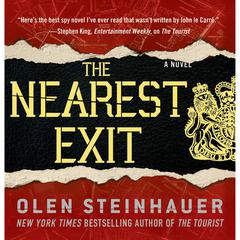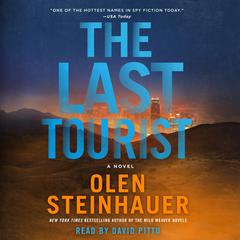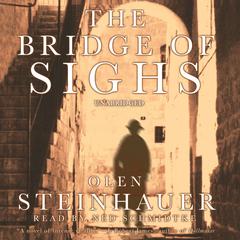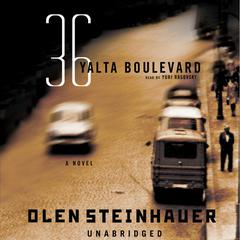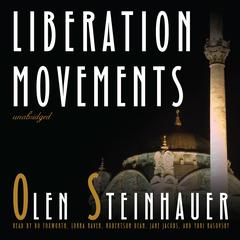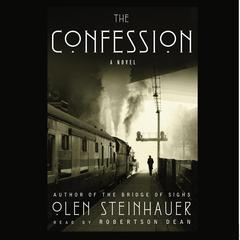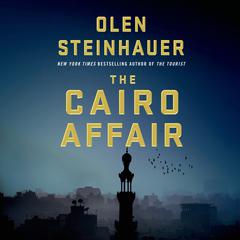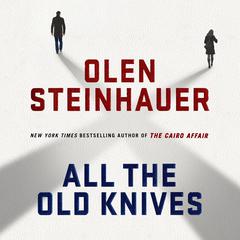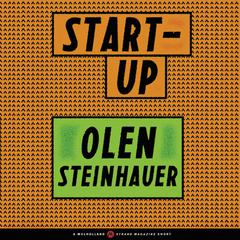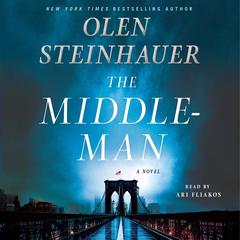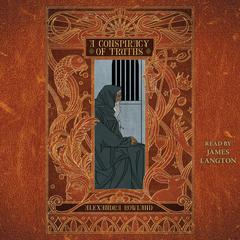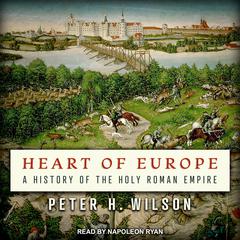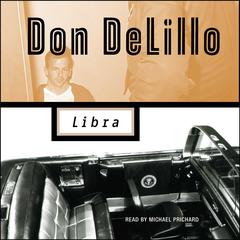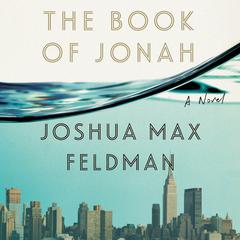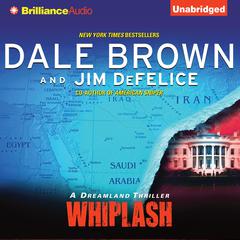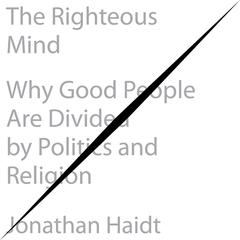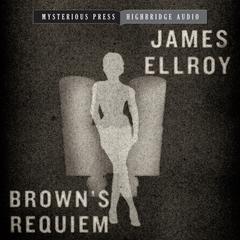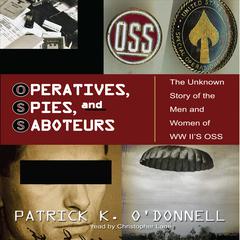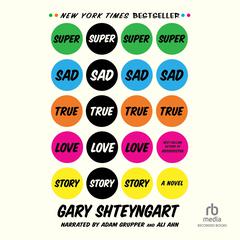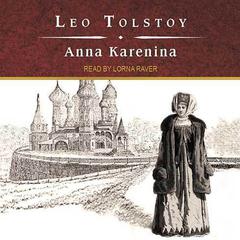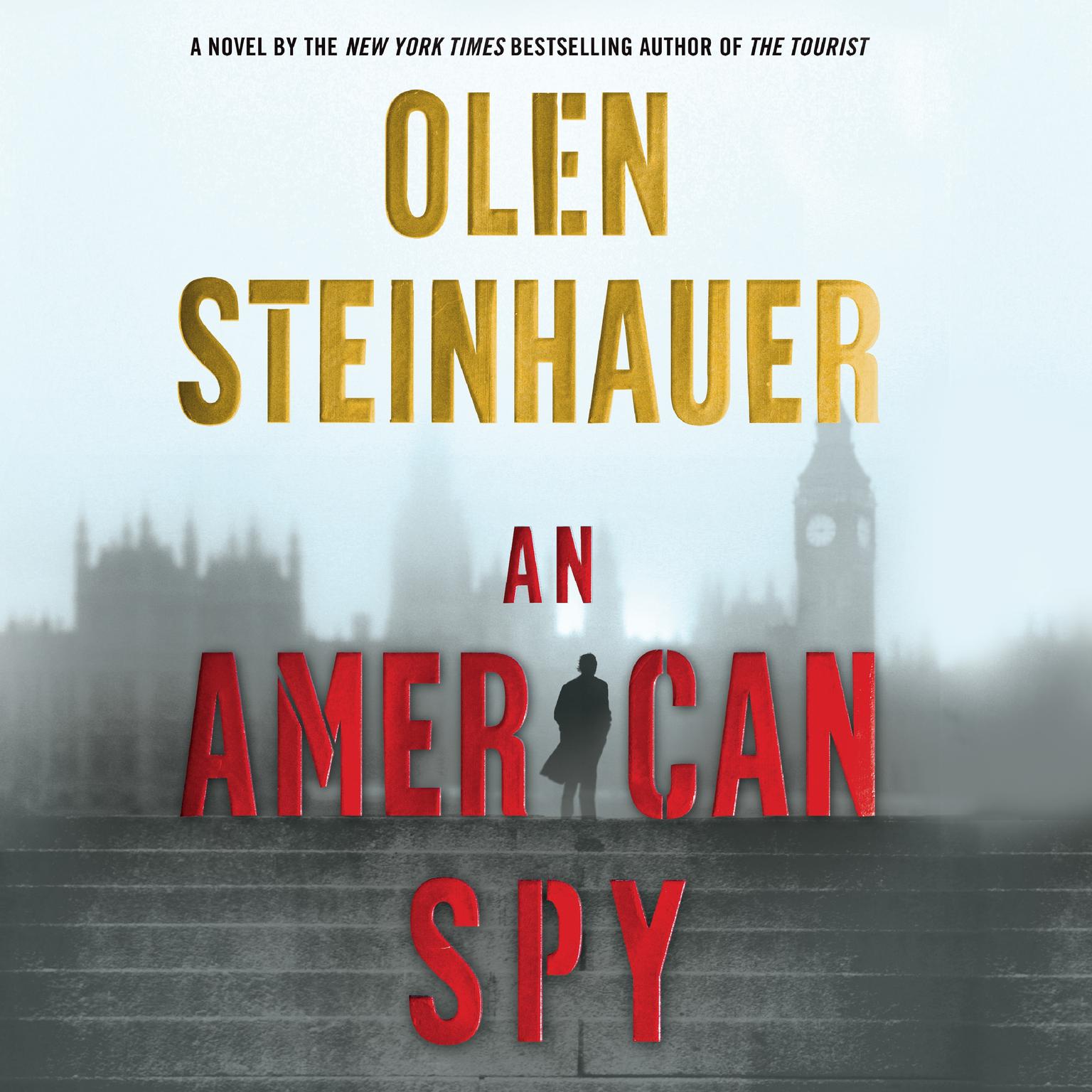 Play Audiobook Sample
Play Audiobook Sample
An American Spy: A Novel Audiobook
 Play Audiobook Sample
Play Audiobook Sample
Quick Stats About this Audiobook
Total Audiobook Chapters:
Longest Chapter Length:
Shortest Chapter Length:
Average Chapter Length:
Audiobooks by this Author:
Publisher Description
In Olen Steinhauer's bestseller The Tourist, reluctant CIA agent Milo Weaver uncovered a conspiracy linking the Chinese government to the highest reaches of the American intelligence community, including his own Department of Tourism---the most clandestine department in the Company. The shocking blowback arrived in the Hammett Award--winning The Nearest Exit when the Department of Tourism was almost completely wiped out as the result of an even more insidious plot. Following on the heels of these two spectacular novels comes An American Spy, Olen Steinhauer's most stunning thriller yet. With only a handful of "tourists"---CIA-trained assassins---left, Weaver would like to move on and use this as an opportunity to regain a normal life, a life focused on his family. His former boss in the CIA, Alan Drummond, can't let it go. When Alan uses one of Milo's compromised aliases to travel to London and then disappears, calling all kinds of attention to his actions, Milo can't help but go in search of him. Worse still, it's beginning to look as if Tourism's enemies are gearing up for a final, fatal blow. With An American Spy, Olen Steinhauer, by far the best espionage writer in a generation, delivers a searing international thriller that will settle once and for all who is pulling the strings and who is being played. An American Spy is one of The New York Times Notable Books of 2012. “Olen Steinhauer’s Milo Weaver novels are must-reads for lovers of the genre.” —The Washington Post “Readers are irresistibly drawn into Weaver's dogged struggle to unravel a complicated game of cat and mouse.” —USA Today
Download and start listening now!
"Great spy novel. I love the way Olen takes you back periodically and runs the whole scenario from a different players perspective. My first in the series, but now I must read the original two Milo books."
— Clint (4 out of 5 stars)
Quotes
-
“Not since John le Carré has a writer so vividly evoked the multilayered, multifaceted, deeply paranoid world of espionage, in which identities and allegiances are malleable and ever shifting…Real espionage is actually like this.”
— New York Times -
“Like the two novels that precede it, this one is richly populated with characters of shifting loyalties from many lands, an assembly that demands a range of accents and voices…David Pittu executes them all…He transfers his voice from person to person in the book’s many conversations (and interrogations) with dexterity, leaving the listener in no doubt as to who’s speaking.”
— Washington Post -
“By the end of An American Spy, there is a tantalizing hint that those left standing will live to spy another day. This reader certainly hopes so, as will many who succumb to the seduction of Steinhauer’s irresistible masterwork of love, guilt, and revenge.”
— Los Angeles Times -
“Superb…Elevating these modern noir elements are Milo’s moral complexity, and the rich, often ironic personal details of the lives of some very bad people indeed.”
— Cleveland Plain Dealer -
“Stunning…Steinhauer is at the top of his game—but when isn’t he?”
— USA Today -
“Steinhauer does for Chino-American espionage exactly what John le Carré did for the Cold War, which gives his thriller a unique insight into this treacherous half-lit world in the twenty-first century.”
— Daily Mail (London) -
“The plot unfolds with such ease, grace, and force that you simply don’t want it to end.”
— Dallas Morning News -
“Right now the hottest name in [the spy thriller genre] is Olen Steinhauer. He’s been called John le Carré’s heir apparent, and the best espionage writer of his generation. For anyone who reads spy novels, that’s high praise.”
— CNN.com -
“Excellent…Steinhauer is particularly good at articulating contemporary spy craft—the mechanics of surveillance and intelligence in the digital age and the depth of paranoia endemic to the trade. In addition, his ability to create characters with genuine emotions and conflicts, coupled with an insightful and often poetic writing style, set him apart in the world of espionage fiction.”
— Publishers Weekly (starred review) -
“The best spy novelists have long shaded their stories with the gray of moral ambiguity and Steinhauer works in that tradition while deconstructing James Bond even further. Political considerations play almost no role in this dizzying, dazzling array of hidden agendas and confused allegiances; all motivations are personal and the ultimate goal is survival…Another must-read from the best novelist working in the tradition of John le Carré.”
— Booklist (starred review) -
“This follow-up to The Tourist and The Nearest Exit proves the adage that good things come in threes. With Milo Weaver as the conscience-worn hero, Steinhauer does for Chinese-Western intrigue what John le Carré did for the Cold War era of international espionage. A mesmerizing series.”
— Library Journal -
THE TOURIST
-
A protagonist who’s as winning as he is wily.
— Stephen King, Entertainment Weekly -
[Steinhauer] excels when the focus is on Weaver, an intriguing, damaged man yearning to break free of his dark profession.
— People -
The kind of principled hero we long to believe still exists in fiction, if not in life.
— The New York Times Book Review (Editor’s Choice) -
THE NEAREST EXIT
-
Milo Weaver, Steinhauer’s hero, is the opposite of Swagger and Reacher—he is conflicted and neurotic and hopelessly sentimental—but no less entertaining.
— Malcolm Gladwell, TheNewYorker.com -
Milo’s company is at least as valuable to the series’s appeal as is his flair for international trickery.
— Janet Maslin, The New York Times -
AN AMERICAN SPY
-
Olen Steinhauer’s Milo Weaver novels are must-reads for lovers of the genre.
— The Washington Post -
Readers are irresistibly drawn into Weaver's dogged struggle to unravel a complicated game of cat and mouse.
— USA Today
Awards
-
One of the 2012 New York Times Book Review 100 Notable Books for Fiction
-
A New York Times bestseller
-
Winner of an AudioFile Earphones Award
-
Among longlisted titles for New York Times Book Review Notable Books of the Year, 2012
An American Spy Listener Reviews
-
" Hard to follow. In the end, all the pieces fit, but I had to work my butt off to keep my eye on all the balls Steinhauer was juggling and to sort out all the massive shifts in time. In my opinion it was unnecessarily decoupled chronologically. Also , Milo doesn't even show up until you are over 1/3 of the way in. Disappointing. "
— Ned, 2/17/2014 -
" I was eagerly awaiting this next in the Milo Weaver series. Not happy. I understand his premise of following from The Nearest Exit but way to involved with the Chinese end of it and not to add headaches but the Chinese names and who is who was a pain. Milo does not enter the story until approx. 90 pages in by then my head seemed to explode. Then Olen S changes his writing style as going over the same events for all parties from their different perspectives. Ugh! Just felt there was no flow to the story. No real heroics or battles from Milo and the one Tourist you would like to get to know and here his exploits you get barely anything. That is Hoang. Different type of payback here and I did figure out ahead of time who the Mole was and eventually the plan the CIA wanted to execute. Clever just would like to see Milo in action. There are definitely more books to come with Milo. One surprising ending here for one likable character. "
— Kevin, 2/9/2014 -
" I love Steinhauer's books. Once again, he comes through in this knockout of a read. "
— Sesh, 2/7/2014 -
" Quality fiction in the spycraft genre. "
— Matthew, 1/26/2014 -
" I can't put my finger on it, but this one didn't live up to the other Milo books for me. Too formulaic is my best guess. Its good, but not great. "
— Mark, 1/26/2014 -
" nicely twisty... "
— Matthew, 1/21/2014 -
" A great spy story ... however, it would be difficult to follow if you had not read the previous ones in the series. "
— Brian, 1/20/2014 -
" Solid spy fare. Best review what happened in the previous book if it's been a while, since there isn't much "the story so far...". "
— Ian, 1/14/2014 -
" I felt like I walked into the middle of a story. I think one needs to start at the first of this series to get the full picture, not the third or fourth book into the series "
— Tom, 1/13/2014 -
" The was the third of a trilogy. Lots of Chinese names/characters in the first part to keep track of but they all come together in the end. Excellent review of this book in the New York Times recently. "
— Charlene, 1/4/2014 -
" Good end to the series - as usual, took a long time to get there. But worth it. "
— Scott, 12/21/2013 -
" This book took a long time to warm up. "
— Denise, 12/12/2013 -
" classic tourist "
— Mrparlay, 12/11/2013 -
" This sequel was a little forced but I still enjoyed the character of Milo Weaver and the Department of Tourism. "
— Liz, 11/18/2013 -
" Great finale to the trilogy "
— Davy, 9/9/2013 -
" A very good, sometimes superb, spy thriller. If you like the genre, you'll really enjoy this, which is the last in the Milo Weaver trilogy. "
— Vivian, 6/20/2013 -
" I enjoyed the first two but getting through this one was a chore. "
— Dan, 1/26/2013 -
" A tad hard to follow. Not my favorite of the "Tourist" books, but still worth a read if you're into the spy genre. "
— John, 11/25/2012 -
" too many Chinese names that made it so confusing. Not as good as first two books. "
— Barbara, 8/4/2012 -
" Love his writing. Can't put it down. Read the first two prior "
— Chris, 7/19/2012 -
" Not as good as his first two, but still one of the finest spy novelists writing today "
— Rob, 3/13/2012
About Olen Steinhauer
Olen Steinhauer is a New York Times bestselling author of ten novels, whose work has won the Dashiell Hammett Award, been a two-time Edgar Award finalist, and was shortlisted for the Anthony, the Macavity, the Ellis Peters Historical Dagger, the Ian Fleming Steel Dagger, and the Barry awards.
About David Pittu
David Pittu, a two-time Tony Award nominee, has narrated dozens of audiobooks, including Donna Tartt’s The Goldfinch, which earned two prestigious Audie Awards for best narration. He has also won three Earphones Awards. Well-known for his work in theater, he has appeared off-Broadway in LoveMusik and Is He Dead, for which he received his Tony nominations, as well as Parade, for which he earned a National Broadway Award for Best Actor in a Musical. He is also a writer, member, and director of the Atlantic Theater company.





